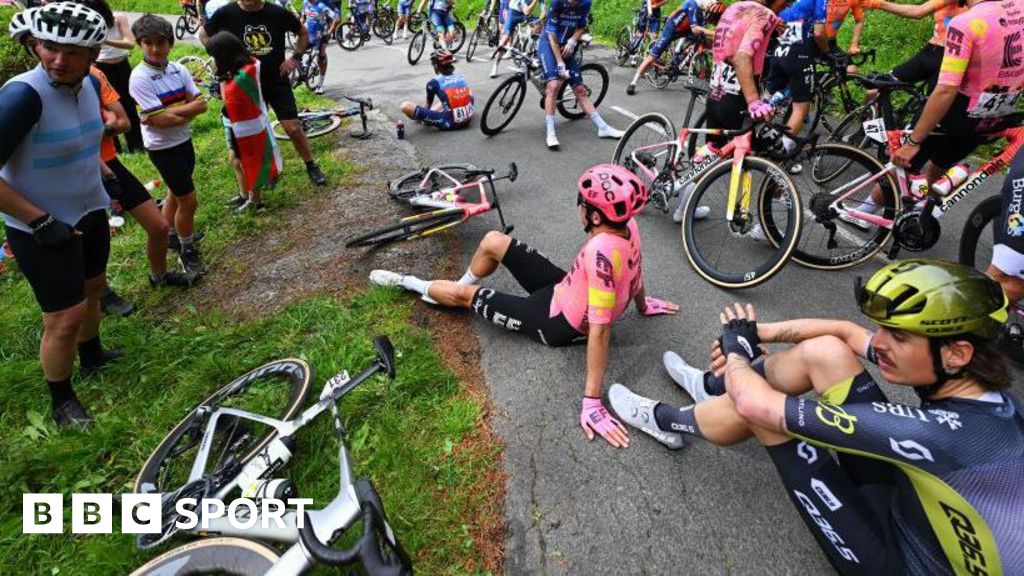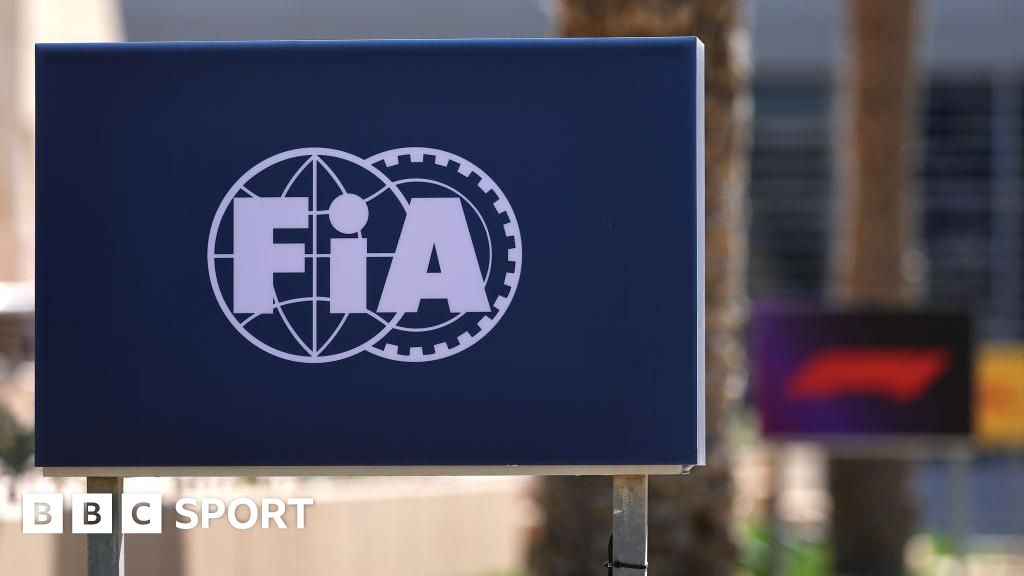The UCI will trial yellow cards to make professional cycling a “safer sport”.
David Lappartient, president of the sport’s governing body, said the cards will be issued “for any offence likely to pose a risk” to safety on a trial basis, from 1 August until 31 December in men’s and women’s professional road races.
No sanctions will be issued in the trial period but punishments, ranging from fines to disqualifications and suspensions, will be imposed on riders from 1 January 2025.
Two yellow cards in a one-day or stage race will result in a seven-day ban.
The yellow card trial is part of a package of measures under a the UCI’s SafeR programme, which aims to improve rider safety after some high-profile crashes this season.
Denmark’s two-time Tour de France winner Jonas Vingegaard suffered a collapsed lung and Australia cyclist Jay Vine sustained spinal injuries in a high-speed crash during the Itzulia Basque Country race in April.
Race leader Primoz Roglic and fellow Grand Tour winner Remco Evenepoel also abandoned the same race after going down in the crash.
“The safety of riders is a priority for the UCI, and it was with this in mind that we created SafeR, a structure dedicated to safety, bringing together the main stakeholders in professional road cycling,” Lappartient said.
“I am convinced that the measures announced will enable us to make progress towards a safer sport.”
In addition to yellow cards, the UCI also wants to test restrictions on wearing and using earpieces in races, which it says “could be both a source of distraction for riders and a physical hazard”.
Modifications of the so-called ‘three-kilometre’ sprint zone rule and a simplification in calculating time gaps in stages with a bunch sprint finish are also to be looked at.





















